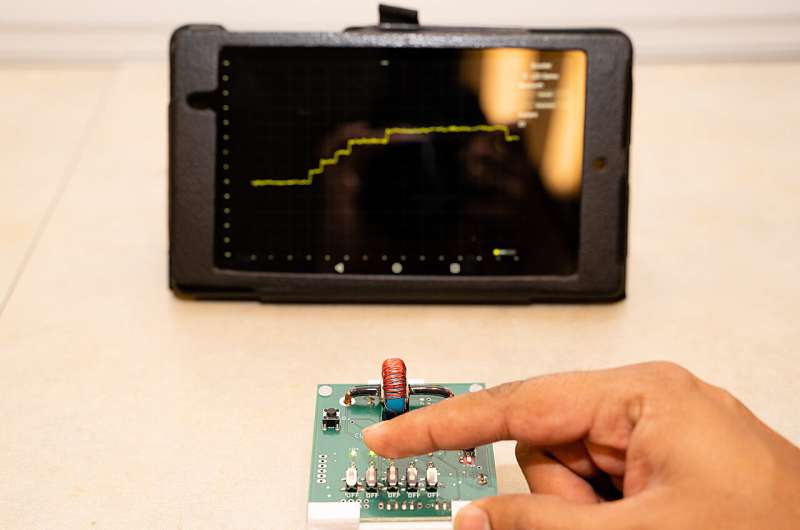Sensing technology could improve machine learning precision for manufacturing, electric vehicles, smart homes

The same small piece of technology that one day may help train welding robots and monitor electric vehicles could enable energy companies to better power smart homes and factories.
Purdue University innovators have developed a sensing module that works with machine learning for applications ranging from electric cars to manufacturing and home design. The technology is a small and noninvasive sensor that monitors electric currents.
"We have created the first-of-its-kind current sensor that is noninvasive, safe and much more precise than other options," said Kaushik Roy, Purdue's Edward G. Tiedemann Jr. Distinguished Professor of Electrical and Computer Engineering, who helps lead the research team.
Options for current sensing in applications such as electric vehicles include using a resistor as a current sensor or using a non-invasive Hall sensor, which cannot measure small currents. The Purdue team uses a machine learning algorithm with the sensor to help interpret and gather data such as energy usage, problems with the current and the best approaches to manufacturing.
"Our technology enables someone to discover through current," said Byunghoo Jung, a professor of electrical and computer engineering in Purdue's College of Engineering, another member of the research team. "This sensor could be used with machine learning to train manufacturing robots, provide precise tips for homeowners on cutting down their energy usage or help diagnose issues with electric vehicles and scooters."
Roy said other advantages of the Purdue sensor include easy installation and maintenance, since the small sensor is wrapped around a central wire to monitor the current. The sensor can transmit the measured current information to any computing system through Bluetooth, USB or other methods, and can be trained through machine learning to detect something as precise as the brand of microwave being used at a certain time and if that time of day is optimal for energy consumption.


















